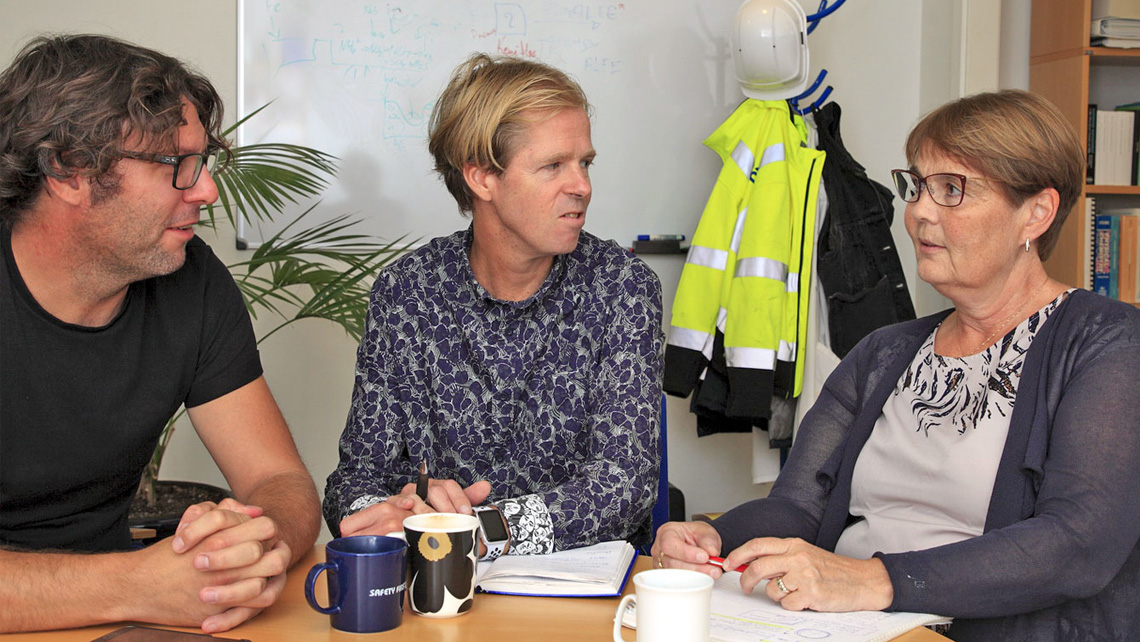Europe, and Germany in particular, is a real hotbed of activity when it comes to biogas production. We’ve got 10,000 of the world’s 12,000 biogas plants here, producing electricity, heat, and biofuels from a variety of organic waste sources. I started out working in wastewater treatment, where I learned a lot about the importance of focusing on the details to get the best possible end result. This is one of the things that sets Kemira’s biogas offering apart; we have the combination of expertise, chemistries, and technologies to address the needs of each individual customer and help them take their process to the next level in terms of quality, quantity, and stability.
It’s the microorganisms that do most of the work converting organic waste to biogas – we just have to create the right environment for them to flourish and do their job properly.
Making sure nothing goes to waste
There’s no one-size-fits-all approach when it comes to biogas production. Each and every plant has its own unique needs depending on the kind of substrate it’s using, the digestion technology, the digestate treatment, and what the biogas generated will be used for. This is why I love working in this area, because I can really “get my hands dirty” so to speak, by diving deep into the details to see how our expertise and chemistries can help a customer boost their business. At the end of the day, it’s the microorganisms that do most of the work converting organic waste to biogas – we just have to create the right environment for them to flourish and do their job properly.
EU’s Renewable Energy Directive – which requires the EU to fulfill at least 20% of its total energy needs with renewables by 2020 – the pressure is really on to get more from our biogas production facilities.
Our expertise and chemistries have helped biogas producers who handle waste from a huge variety of sources, including the food and dairy industry, the agricultural sector, and households. And with legislation like the EU’s Renewable Energy Directive – which requires the EU to fulfill at least 20% of its total energy needs with renewables by 2020 – the pressure is really on to get more from our biogas production facilities. This is where Kemira, and smart solutions like our Kemira BDP (Kemira Biogas Digestion Products) formulations, comes in.
A winning combination for the whole production process
I like to think of us as therapists for customers in the biogas industry. It’s all about listening to problems, understanding what might be behind them, and then using our expertise to come up with a smart solution to solve them. In simple terms we use our expertise to develop tailor-made products that improves the efficiency of the methane-forming microbes. So, they then can digest waste in order to increase the substrate load and the biogas production level. Our biogas boosters, known as Kemira BDP, helps to create optimal conditions for these microbes, resulting in a more stable process and increased biogas yield.
Since Kemira BDP products are liquids containing both the iron and the trace elements needed by the microbes , the customer only needs one tank and one pump. It’s also easier to handle and lower risk compared to using two separate chemical products. As well as boosting yield, Kemira BDP helps customers produce cleaner biogas and prevent equipment corrosion by reducing the hydrogen sulfide content. We’ve seen great results with BDP. For example, a biogas digestion treatment based on Kemira BDP technology helped the OX2 plant in Helsingborg, Sweden boost their organic loading rate by 33%, while in another case a kick-start dose of BDP saved one customer’s biogas fermentation process from collapsing entirely.
Our job is to dig deep to work out how we can gear our chemistries to help customers get the best out of their process.
Understanding the essentials is key to future success
I always say that our approach is based on building a really close relationship with the customer from the very beginning. If we’re going to achieve the best possible results, we need to understand all the essentials about their process and plant, and this comes not just from gathering data and hard numbers, but also from having conversations that reveal valuable information. The biogas production process in digesters can be a tricky animal to tame, and there are lots of things that can upset the delicate balance of the process. Our job is to dig deep and really use our brains to work out how we can gear our chemistries to help customers get the best out of their process.
For me, there’s real magic in my work in terms of understanding how to manage microorganisms better and make them perform in the way you want for a specific purpose. It’s amazing to think that these tiny, simple forms of life are helping us take big steps towards a more sustainable future.


